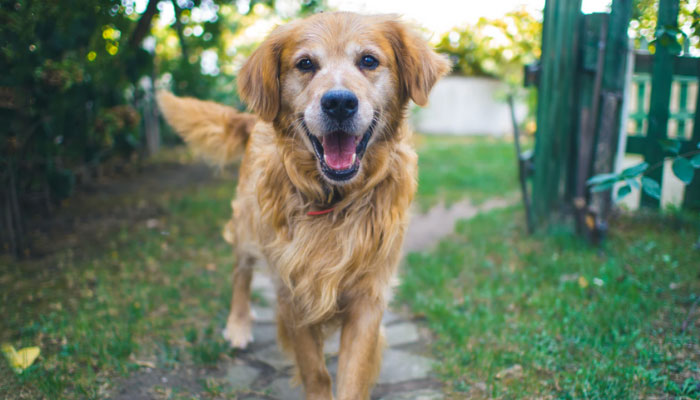
Aging is a normal part of life and pets also become seniors at some point. The number of years it takes for a pet to be classified as a senior may vary. It all depends on the individual pet. As a rule of thumb, dogs become seniors at age 7 and cats earn this distinction at 11-14 years. However, it’s worth noting that larger dogs age more rapidly than smaller dogs. Therefore a Great Dane is classified as a senior at 6 years old whereas a Chihuahua of the same age may be considered middle-aged. Let’s look at pet care tips for older pets.
Senior pets have different care requirements than younger ones. As pets age, they become less mobile. They are also more prone to disease, and their hearing and sight deteriorate. However, senior cats and dogs can stay healthy and happy. If your pet has achieved senior status, here are 5 crucial care tips to help keep your canine companion happy during the golden years. They deserve it.
Pet Care Tips for Older Pets
Visit the Vet More Often
Regular visits to the vet are important for all pets but become crucial and more frequent with age. Just as with elderly people, pets become more prone to all sorts of ailments as they age. We recommend taking your senior dog or cat to the vet at least twice a year. Dental care, examinations, and blood work during these visits allow the doctor to establish baseline health. This provides a great opportunity for early detection and treatment of ailments before they become major problems.
Watch Your Senior Pet’s Diet
Mature cats and dogs often have food issues, including lack of appetite, chewing, and obesity. They also require fewer calories as they become less active. You need to tweak your pet’s diet to maintain healthy lean muscle mass and optimal weight. Watching their diet will also help keep their immune system functioning well. Overweight pets have a higher likelihood of disease and joint problems later in life. If your four-legged friend has joint issues, they may benefit from supplements such as glucosamine or fish oil.
Provide Regular Exercise
Regular exercise becomes more important as your pet ages. Your pet might not chase the frisbee the way they used to or jump like before. However, exercise continues to be imperative to their health. Regular, gentle exercises keep your pet’s muscles strong and supple. Exercise also will stimulate appetite, keep the joints healthy, prevent obesity, and improve mood. Not to mention, it will prevent boredom and anxiety. Stimulating toys such as food puzzles, taking a ride in the car, playing with toys, going for a walk, or playtime in the backyard can help keep your furry friend sharp. Moderation is important. Talk to your vet about an exercise program based on your pet’s health and limitations.
Maintain Good Oral Health
Increased attention to dental and oral care becomes more important as your pet ages. Tooth loss and pain associated with oral and dental diseases can make chewing difficult. To keep your pet’s teeth healthy and prevent dental issues, you need to brush them every day. If your pet will not tolerate tooth brushing, start giving them dental treats or dental toys. You should also take your pet to the vet for regular professional dental cleanings.
Provide Special Accommodations
Just as you once pet-proofed your home, you now need to “seniorize” it. Older pets develop bone and joint problems that limit their mobility. Additionally, a blind dog or cat will have trouble jumping on the sofa or bed at night. In such cases, you can get an easily accessible bed with soft bedding. Also, avoid moving furniture to prevent confusion and help your pet navigate through the house. For pets with joint issues, consider getting a ramp that will make getting on the couch or bed much easier. Keep water, food, and their bed in areas they can easily reach. It’s also a good idea to place non-slip rugs and carpets around the house to help your furry companion maintain traction when rising. This can also prevent falls as well. Finally, providing heated beds can help soothe achy joints, especially during the cold season.
Taking care of a senior pet requires a little more work than you’re used to. But it can be a rewarding experience. With these pet care tips for older pets, proper, your pet will lead a happy and healthy life for years to come. Book an appointment at Naples Coastal Animal Hospital or call us at (239) 500-0105 for more pet care tips.
